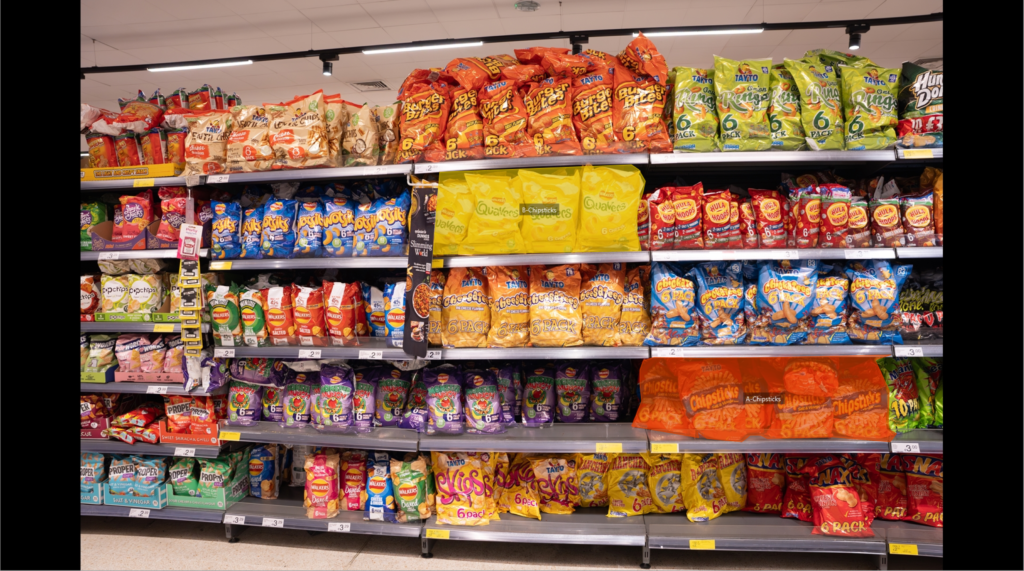A lot of our time and efforts are spent on focusing on the impact of stocking products at chest-eye level in store. But, what are the unintended consequences of this?
We are all accustomed to seeing leading brands (and increasingly own-brand) products appearing in prime grocery retail locations. But over time, could this expectation have built a negative subconscious association to products appearing on lower shelf-locations?
We wanted to investigate whether shelf locations closer to the floor have a negative impact on Product Desirability and Purchase Intent. To do this, we A/B Tested multiple shelf heights for a variety of products across multiple categories.
We found that:
📈 Lower shelf locations were 8% less desirable than shelves at chest-eye level – measured through frontal asymmetry within the brain
🤯 Cognitive Load increased by +18% for shelf locations nearer the ground – this additional load plays a factor in the consumer decision making process – generating aversive responses
💶 Consumers experienced -26% drop in Purchase Intent for products when they were stacked in locations closer to the floor vs. when the very same product was at chest-eye level.
📍Locations in the bottom right of the consumer’s particular vantage point consistently performed poorest across all target metrics
While the ease of accessing the product at chest-eye level facilitates selection and purchase, products located closer to the ground are perceived to be of less quality, while premium products are located towards eye level (and slightly below).
Additionally, from an evolution perspective, rotten fruits fall from the tree first, as such gatherers have always collected directly from the tree rather than the ground.
There is also the scenario where by being closer to the ground, products on lower shelves are associated with the floor, and the perceived lack of hygiene.






